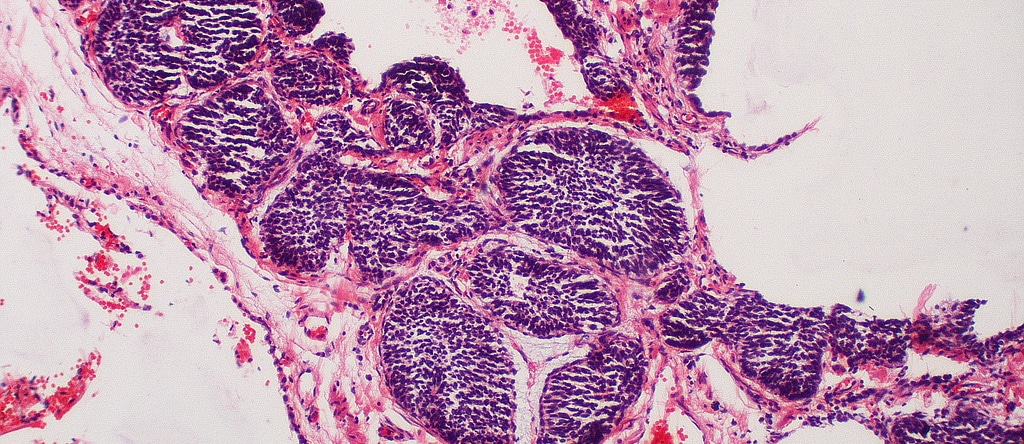Certain cancers—like breast cancer—can be thought of in part as an autoimmune disease.
When people get heart or kidney transplants, they must be given immunosuppressive drugs to prevent rejection of the new organ. What do you suppose happens to cancer rates in those individuals who have their immune systems suppressed? Well, for some types of cancer, like skin cancer, the risk goes up. This supports the so-called immune surveillance theory—the idea that our immune system acts as a natural defense system for keeping cancer under control (see a cool video of immune cells taking on a cancer cell here). This could explain why, as we age and our immune function declines, our risk of cancer goes up.
The problem with the immune surveillance concept is that for some cancers, suppressing immune function decreases risk. After a kidney transplant, though your skin cancer risk may go up, your breast cancer and rectal cancer risk goes down. Why would people with depressed immune systems have less cancer? This led to a new theory of cancer I explore in my 4-min. video Cancer as an Autoimmune Disease.
The only reason the immune system is even able to pick out cancerous cells from noncancerous cells is because tumors express foreign looking molecules that stimulate our immune system. Why would tumors do that? Why would cancer cells go out of their way to wave a red flag around saying, “Hey, come get me!”? We think it’s because cancer tends to thrive in a setting of low level inflammation. In the video I show a number of examples of chronic inflammation leading to cancer–ulcerative colitis to colon cancer, chronic pancreatitis to pancreatic cancer, chronic hepatitis to liver cancer, and stomach inflammation to stomach cancer. Oftentimes the body’s inflammatory immune response can further cancer’s agenda.
By inciting an immune response, cancer creates its own inflammation, which may stimulate angiogenesis, the formation of new blood vessels to bring blood to the tumor and help it grow. This may explain the mystery surrounding Kaposi’s sarcoma, a cancer affecting those with AIDS. When you start treating AIDS and the immune system starts to recover you can actually see a flare in the cancer.
So what are the dietary implications of this new autoimmune theory of cancer? See my 3-min. video How Tumors Use Meat to Grow: Xeno-Autoantibodies. In short, there’s a molecule called Neu5Gc found in nonhuman animals but not made by the human species. Cancerous breast tumors appear to incorporate this molecule that women consume in meat and dairy to trick their immune systems into creating the environment of low-grade inflammation that breast cancer thrives in. Our own cancer may use what we feed on to get what it feeds on.
For more on Neu5Gc, one of the most fascinating topics of modern day nutrition, see my 4-min. video The Inflammatory Meat Molecule Neu5Gc.
Why else might those eating plant-based diets have lower risk of all cancers combined? Kathy Freston wrote a good summary. It could be due to diminished exposure to IGF-1, heme iron, inflammation, viruses, antibiotics, saturated fat, nitrosamines, and arachidonic acid associated with animal product consumption. Or it could be the DNA repair,cellular stress defenses, anti-inflammatory properties, soy, lignans, phytonutrients, and fiber associated with healthy plant food consumption. It’s probably both, so it may not be enough to just eat vegan—we need to eat our veggies too.
–Michael Greger, M.D.
PS: If you haven’t yet, you can subscribe to my videos for free by clicking here and watch my full 2012 – 2015 presentations Uprooting the Leading Causes of Death, More than an Apple a Day, From Table to Able, and Food as Medicine.
